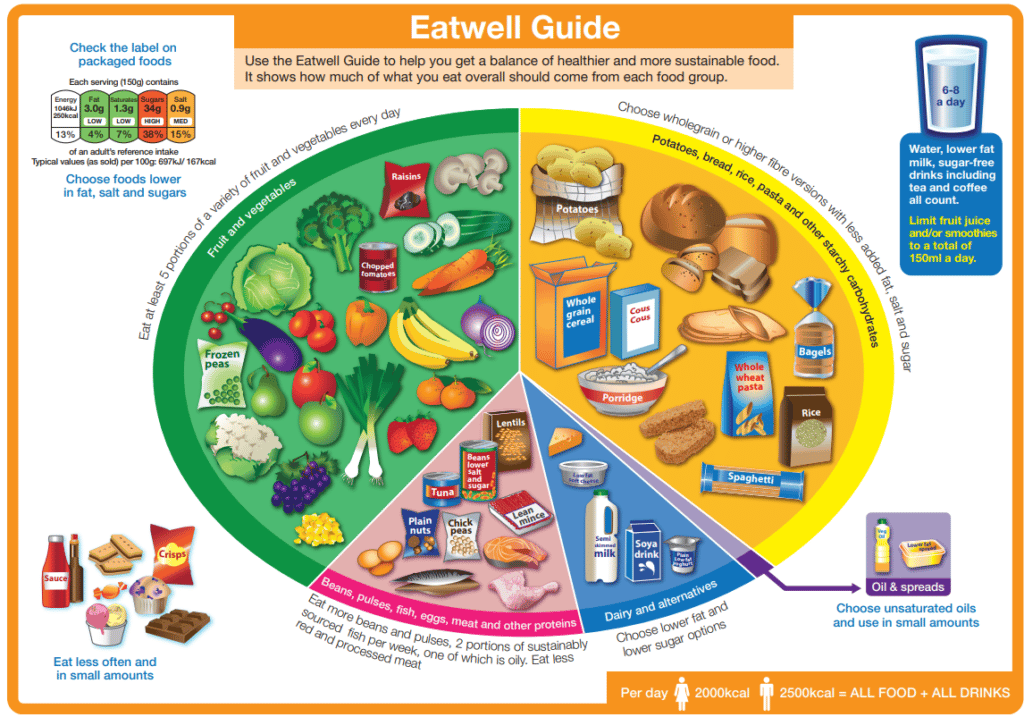Eating Well
Eating well after COVID
After recovering from COVID you might have symptoms such as feeling sick (nausea) and tummy (abdominal) pain, which can affect your eating and weight. You might find that foods you used to enjoy taste different, and that you are more sensitive to certain foods or medicines.
- Try to keep to a routine and space food out during the day, rather than going long periods without food and then eating large amounts – aim to have 3 meals each day, or smaller meals more often with snacks in between
- If you are feeling uncomfortable after eating, you might find it better to have a smaller meal and have a snack in between (3 small meals and 3 snacks spread over the day)
- Try not to graze on food all day as this can reduce your appetite at mealtimes
- If you are feeling sick you might find plain foods, such as toast or crackers, are easier to manage – eating cold foods might be easier to manage than hot foods as sometimes it is the smell of the food that can make you feel sick – ginger biscuits or drinks, or peppermint tea or cordial, might help to settle your stomach and sipping iced water slowly or sucking ice cubes or frozen fresh or tinned fruit might also be helpful
- If your mouth is sore, soft or cold foods might be better for you, and drinking through a straw might be more comfortable – having a nutritious drink such as a homemade smoothie might help if you are struggling to eat a meal – try blending fresh or tinned fruit with full fat milk and yoghurt.
- Follow a healthy, balanced diet eating the right types of food in the right amounts
There is no evidence to support special diets that advise you to cut out specific foods or food groups to help recovery after COVID. Cutting out foods in this way can mean you miss out on important nutrients (substances our bodies need) and it can affect your health in other ways. Special diets can also be expensive and time consuming to prepare, creating extra work at mealtimes for you, your friends and family.
Foods
The Eatwell Guide (calorie figures are for adults, not children) is a useful guide to getting the right balance of foods in your diet.
Each day you should try to eat:
- 2 to 3 portions of protein (such as meat, fish, eggs, beans, pulses)
- 3 to 4 portions of starchy foods (such as bread, rice, potatoes, pasta)
- 5 portions of fruit and vegetables (fresh, dried, frozen or tinned)
- 2 to 3 portions of dairy and alternatives (such as milk (including plant or nut alternatives), cheese, yoghurt)
A portion is measured as the amount of food that fits into the palm of your hand.
Try to choose healthier options such as fruit, cracker with cheese, a small bowl of cereal, vegetable sticks with hummus, or a handful of nuts.
Limit high sugar, high fat snacks such as crisps, cakes or biscuits to only one a day.
It is important to keep well hydrated (drink enough). Try to drink water (or weak squash), diluted fruit juice or semi-skimmed milk instead of fizzy drinks which have added sugar.
Try to drink 6 to 8 glasses each day.
If you are feeling tired, try not to have drinks that have caffeine (coffee and some energy or fizzy drinks) to try to wake you up, as they might have the opposite effect and stop you from sleeping later.
The NHS recommends all children between 6 months and 5 years are given vitamin supplements containing vitamins A, C and D every day. However for most children and adults over the age of 5, if a healthy, balanced diet is followed there is no need to take a vitamin and mineral supplement. Of course, if you have been told to take them by your health team, you should continue to take them until you are told to stop. It is important not to take too much of any vitamin or mineral, so keep to what has been recommended.
Vitamin D is important for the development of strong bones and muscles, and the best source is from the sun. If you have spent more time indoors recently the vitamin D levels in your body may be low and you may be advised by your medical team to take a vitamin D supplement. During the winter months (October to March) when there is less sun it might be helpful for everyone to take a vitamin D supplement. You may speak with your GP or medical team for further advice.
Managing your weight
You might feel more tired and so cannot be as active as usual. You might find that some medicines make you feel hungrier. It is important to try to manage your weight as it can make it harder to start activities again.
Following the advice above about portion size and snacks will help to make sure you continue to eat the right amounts for your body and maintain the right weight for you.
If you are worried about changes in your weight ask your medical team or GP, who may refer you to a dietitian.
As your appetite starts to improve, why not try some new recipes? This might simply be making a smoothie or helping a family member prepare or cook the family meal. Starting to take an interest in what you are eating can help to make sure you are eating the right balance of foods to maintain your health now and in the future.
More useful resources
British Dietetic Association has information to help you eat well.
British Nutrition Foundation has information about nutrition at different ages.
The NHS website has information on eating well.

